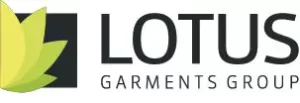The fabric industry is one of the oldest and most significant sectors worldwide, deeply rooted in history. Its origins can be traced back to Neanderthal man’s realization of the need for clothing to protect against the harsh elements of nature. Egypt, with its rich history dating back thousands of years, stands as a pioneer in the fabric industry. Over the decades, with the support of various governments, the Egyptian fabric industry has evolved into a vital pillar of the nation’s development.
Egypt’s Fabric Market: A Key Global Supplier
In 2016, the Ministry of Trade and Industry in Egypt recognized the fabric industry as one of the five backbone industries of the Egyptian economy. This acknowledgement underlines the industry’s importance as a primary supplier of fabric materials to both domestic and international markets. Egypt’s fabric industry plays a crucial role in supplying materials to garment and home fabric manufacturers.
Additionally, Egypt enjoys duty-free market access to the fabric markets of the European Union, further enhancing its position as a global supplier. Exports of yarn from Egypt to the EU are expected to rise due to its fabric base and proximity to Turkey for sourcing raw materials. Egypt’s favorable location also makes it a preferred sourcing destination for the United States.
The Pillar of Egypt’s Economy
The fabric industry in Egypt remains one of the five backbone industries of the nation’s economy. It serves as a key supplier of primary fabric materials to garment and home fabric manufacturers, both domestically and internationally. With duty-free market access to the United States and European Union countries, Egypt’s fabric exports account for 50% of its exports to the United States and 30% to European countries.
Pandemic Challenges and Recovery Efforts
Egypt’s fabric manufacturing industry, accounting for 25% of the entire apparel sector, contributes significantly to the country’s GDP, representing 3%. However, the industry faced challenges during the pandemic, resulting in a 14% decline in fabric exports in 2020, with exports totalling USD 2.81 billion compared to USD 3.721 billion in 2019. Despite these setbacks, the industry is poised for recovery, with increasing foreign investments totalling USD 17.5 billion and government initiatives aimed at quadrupling fabric and garment exports by 2025.
Vertical Integration and Production Variety
The Egyptian Fabric Industry operates on a vertically integrated model, encompassing the entire production process from raw materials to finished apparel and home fabric products. This integration leverages the availability of Egyptian cotton fibers and imported fibers such as polyester, viscose, and wool.
The industry’s production portfolio is diverse, encompassing fine Egyptian cotton fabrics, shirting, fabrics for trousers/shorts, worsted wool fabrics, denim, fleece, jersey, flat/woolen knits, technical fabrics, and more. Additionally, the industry produces a wide range of apparel, including active sportswear, outerwear, underwear, suits, socks, and infant wear, as well as various made-up products like bed, bath, and table linens.
The Strength of a Vast Labor Force
Egypt’s population size is a notable strength, with a labor force of nearly 18 million individuals. This workforce comprises semi-skilled, skilled, and highly qualified employees, making it a valuable resource for the industry. The workforce has consistently grown at an average annual rate of 2.70%.
Low labor costs have encouraged the use of labor-intensive technologies, contributing to Egypt’s status as a cost-competitive location for fabric and apparel manufacturing. Remarkably, the fabric and apparel industries account for only 7.7% of Egypt’s total employment, demonstrating their efficiency in utilizing labor resources.
Operating Environment and EU Partnership
The fabric and apparel industry holds significant importance in Egypt, contributing 30% to industrial production and 10% to total exports. Egypt’s partnership agreement with the European Union allows for the export of fabric and apparel products to EU countries without customs tariffs, facilitating trade and growth.
The Future of Egyptian Fabrics
Looking ahead, Egypt’s fabric industry is poised for modernization and expansion. In March 2022, Egypt announced plans to open the world’s largest fabrics factory in El-Mahalla, boasting a daily production capacity of 30 tonnes. The government has also introduced incentives to promote the cultivation of high-quality cotton, aligning with the factory’s needs and creating opportunities for industry players.
Fabric manufacturers in Egypt
Egypt boasts a thriving community of fabric manufacturers who play a pivotal role in the country’s fabric industry. These manufacturers contribute significantly to Egypt’s position as a global fabric supplier, offering a diverse range of fabrics to meet both domestic and international demand.
Leveraging the rich historical heritage of fabric production, Egyptian fabric manufacturers produce high-quality materials, including fine Egyptian cotton fabrics, shirting fabrics, denim, fleece, jersey, and more. With a commitment to traditional craftsmanship and modern innovations, these manufacturers are at the forefront of meeting the evolving needs of the global market. Their dedication to quality and sustainability makes them key players in Egypt’s fabric ecosystem.
You can see the best Egyptian Manufacturers below:
Sharabati Denim

Website: sharabati-denim.com
Tel: +20 482659023/24
Sharabati Denim is a well-known denim brand that originated in Egypt. The brand was established in the year 1978. Over the decades, it has earned a reputation for producing high-quality denim fabrics and garments. Sharabati Denim is recognized for its commitment to craftsmanship and innovation, offering a wide range of denim products, including jeans, jackets, and various other denim apparel items.
The brand’s dedication to quality and its ability to blend traditional denim manufacturing techniques with modern trends have made it a popular choice among consumers in Egypt and beyond. Sharabati Denim continues to be a prominent player in the Egyptian fabric and fashion industry, contributing to the country’s rich fabric heritage.
GoldenTex
Website: www.goldentex.com.eg
Email: [email protected]
Tel: 0554410428

GoldenTex is a prominent fabric company based in Egypt. It was established in the year 1992. Since its inception, GoldenTex has played a significant role in the Egyptian fabric industry, specializing in the production of various fabric products, including fabrics and garments. The company has gained a strong reputation for its commitment to quality, innovation, and sustainability.
GoldenTex’s diverse product range caters to both domestic and international markets, making it a valuable contributor to Egypt’s fabric export sector. With nearly three decades of experience, GoldenTex continues to be a key player in Egypt’s fabric landscape, exemplifying the country’s tradition of fabric excellence and modern manufacturing practices.
LIONTEX
Website: liontex.com.eg
Email: [email protected] / [email protected]
Tel: +20 (66) 3776100 /+20 (66) 3776101 /+20 (66) 3776102
 Established in 2009, located in Port Said city, Egyptian International Fabrics Co. S.A.E (LIONTEX) is one of the leading company specializes in producing and selling a wide range of woven & Knitting fabrics.
Established in 2009, located in Port Said city, Egyptian International Fabrics Co. S.A.E (LIONTEX) is one of the leading company specializes in producing and selling a wide range of woven & Knitting fabrics.
Oulabitex
Website: oulabitex.business.site
Tel: 0120 666 1820 / 0120 666 1821 / 0120 666 1822

Established in 1957, Oulabitex is a leading MENA-region fabric manufacturer with a new cutting-edge facility in Egypt specializing in dyeing and printing woven and knitted fabrics of various fiber compositions.
Egyptian Linen
Website: egyptianlinens.com
Email: [email protected]
Tel: 1-562-865-8808

Egyptian Linen is a well-established fabric company based in Egypt that has been producing high-quality linen fabrics since its establishment in 1989. With its focus on delivering exceptional quality products, Egyptian Linen has become one of the largest producers of linen fabrics in Egypt.
The company’s product portfolio includes an extensive range of linen products, including bed linen, table linen, and clothing. Its linen fabrics are known for their superior quality and are exported to many countries across the world.
Giza
Website: www.gizaspin.com
Tel: +2 02 38900 210 – 215 / +2 048-2659086

Giza Spinning and Weaving Company, also known as “Giza Cotton,” is one of the oldest and most renowned fabric companies in Egypt. It was established in 1929. Giza Spinning primarily focuses on the production of high-quality cotton fabrics, leveraging Egypt’s long history of producing premium cotton fibers known for their superior quality and softness. Over the years, the company has earned a reputation for its commitment to producing fine cotton fabrics, making it a respected name in the fabric industry both in Egypt and internationally.
Lotus
Website: www.lotusgarments.com
Email: [email protected]
Tel: +20 663735551

Founded in 1994, Lotus Garment Group has grown to become a premier clothing manufacturer and exporter. Specialising in the production of denime.
Startex
Website: www.startexeg.com
Email: [email protected]
Tel: +20 55 4 410 178 – +20 55 4 410 179

Startex Fabric Co. is a joint stock venture company with more than twenty years of experience in the Egyptian fabric industry. Startex is now standing as one of Egypt’s leading factories that produces Polyester and Cotton fabrics.
Elkotb Textile
Website: elkotb-tex.com
Email: [email protected]
Tel: +201001776034

Elkotb Fabrics Co. Is One of The Leading Companies in Egypt Specialized In Warp Knitting. The Company’s Product Range Includes Sportswear, Lingerie, Technical Fabrics, Medical Fabrics, Automotive Fabrics, Home Fabrics, Flag Fabrics and Digital Printing Ready Fabrics.
MIDANI Group
Website: midanitex.com
Email: [email protected]
Tel: +2 02 2682 9559
 MIDANI Group for Fabrics is one of the leading names in the field of fabrics in Egypt, first established in 1960, producing only knitted fabrics, and then developed in few years to produce dyed and printed fabrics. 1990 was a turning point for “Middle East co. for Fabrics” as it started the production of Polyester DTY, to be a pioneer in this industry in Egypt.
MIDANI Group for Fabrics is one of the leading names in the field of fabrics in Egypt, first established in 1960, producing only knitted fabrics, and then developed in few years to produce dyed and printed fabrics. 1990 was a turning point for “Middle East co. for Fabrics” as it started the production of Polyester DTY, to be a pioneer in this industry in Egypt.
Strengths and Challenges
Strengths:
Rich Historical Heritage: Egypt’s fabric production boasts a historical legacy spanning millennia, garnering global interest and admiration.
Premium Quality Cotton: Egyptian cotton is renowned for its exceptional quality, stemming from ideal climate conditions and fertile soil along the Nile Delta.
Traditional Craftsmanship: Despite technological advancements, Egypt preserves traditional weaving techniques, adding authenticity and uniqueness to its fabrics.
Sustainability Initiatives: The industry’s commitment to sustainability aligns with global demand for eco-friendly products and ensures long-term viability.
Challenges:
Global Competition: Egyptian fabric producers face stiff competition from other fabric-producing nations, including China, India, and Turkey.
Cotton Price Fluctuations: Egypt’s reliance on cotton production makes it susceptible to global price fluctuations, impacting cost-effectiveness.
Infrastructure and Technology: While modern technology adoption is progressing, some industry segments may still face infrastructure and machinery challenges.
Global Impact and Future Prospects
Egyptian fabrics have made a significant mark on the global fashion industry. Designers and brands seek out Egyptian cotton and fabrics for their collections, associating them with luxury and quality. Iconic Egyptian patterns and motifs in fabrics add a culturally rich dimension to global fashion and home furnishings markets. The luxury appeal of Egyptian fabrics caters to discerning clientele.
As Egypt embraces modern innovations and expands its global outreach through e-commerce, the fabric industry is poised to thrive in a competitive market. These innovations, coupled with sustainable practices, will help overcome challenges and meet evolving consumer demands.
In conclusion, Egypt’s fabric industry, with its rich heritage, premium quality cotton, and commitment to sustainability, remains a formidable player on the global stage. Despite challenges, it continues to shape the world of fashion and fabrics, with a promising future marked by innovation and global expansion.

























